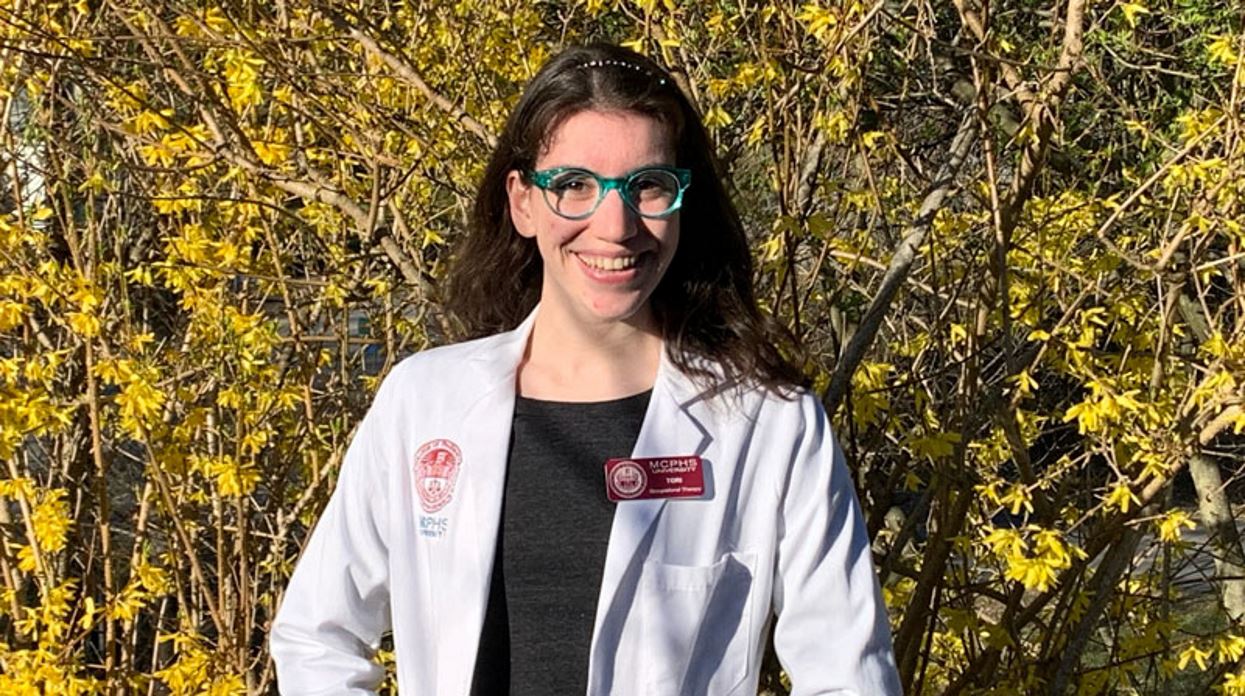
Bringing Research to the OT Community

Victoria Southwell, OT ’22, first learned about the field of occupational therapy as a patient. She was diagnosed with several rare genetic disorders at the age of 18. At the time, she was debating whether to go to school for physical therapy, and found that she was more attracted to the client-centric nature of occupational therapy.
“PT is really about getting you where you want to be, but OT is about ‘what can we do in the meantime so you can do the things you want to do’ and I felt like that was really valuable,” she says.
Southwell applied to the Master of Science in Occupational Therapy program because it was near her home. She has been participating in classes as a remote student. Of all her classes, her favorites have been the classes on research. Recently, she was selected to complete her Level II Fieldwork with the American Occupational Therapy Association (AOTA).
“Being remote has worked out super well for me because I don’t have to worry about running into something that I’m allergic to,” she says. “Also, one of my conditions affects my joints and my mobility, so I knew coming into this that I was never going to work in an acute care hospital . . . that’s part of why I wound up at AOTA, because I was looking for something unique.”
She is working in the Evidence-Based Practice Division, where she is taking research and translating it into handouts that practitioners can use to start implementing research into practice.
“There’s a new guideline coming out about traumatic brain injury, and it’s probably about 50 pages long, so not everybody has the time to read that,” she says. “My job is to go over the document and summarize the evidence and say, ‘here are the ideas for interventions that are evidence-informed.’”
She has also been working on Project ECHO (Extension for Community Healthcare Outcomes), which uses video conferencing to bring research to practitioners and clients in rural areas.
“Practitioners who are working with clients with chronic conditions might be struggling, and now they have access to this expert knowledge in evidence-based practice. The experts also get to learn from the people who are on the ground, so it’s feeding back into academia and that makes the resources more useful,” she says.
Southwell says that her experience working at the headquarters has been surreal.
“I’m still a little bit starstruck with the people I get to work with - my supervisor is the name that you see on the OT textbooks. These people have been OTs for longer than I have been alive, so I feel really honored to be in a room with them and hear them talk about occupational therapy,” she says.
Southwell says that the projects she has been assigned are perfect for her.
“I couldn’t have asked for better projects to work on because they’re specifically on chronic conditions, which is a topic that I’m already interested in,” she says.
Learn more about the School of Occupational Therapy at the Massachusetts College of Pharmacy and Health Sciences.
More University News
Meeting the Moment: Student Research Conference Explores AI in Healthcare
The annual event highlighted how artificial intelligence can transform healthcare and showcased student research projects from disciplines across the University.
How Occupational Therapists Say You Can Care for Your Loved Ones with Dementia
Occupational therapy professors share ways to enhance safety and connection.
MCPHS Student Arms Classmates with a New Perspective on Physics
Through a hands-on demonstration, Olujimi Ohuninioluwa helped students see the link between physics and medicine.
Scholarship on Display: Showcase Features Student Research
Thirty teams of students from the Worcester and Manchester campuses presented their work at the annual event.

